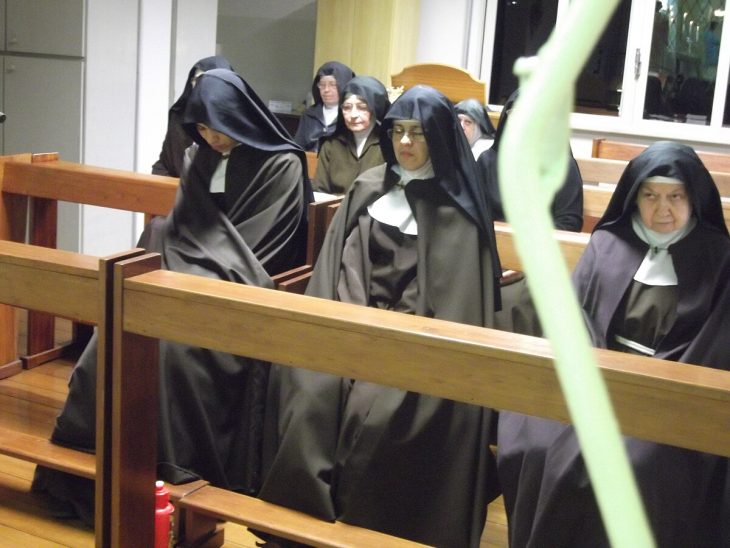
Word of the Day: Mendicity
Today’s word of the day, thanks to the Dictionary Project, is mendicity, which looks an awful lot like yesterday’s word of the day but isn’t. Mendicity is a noun that means “the condition of being a beggar or having to rely on alms for a living.” Dictionary.com defines it as mendicancy, requiring one to look up that word, which is defined as “the practice of begging, as for alms” or “the state or condition of being a beggar” (https://www.dictionary.com/browse/mendicancy).
The word entered the language “c. 1400, mendicite, from Old French mendicite ‘begging,’ from Latin mendicitatem (nominative mendicitas) ‘beggary’” (https://www.etymonline.com/search?q=mendicity). Mendicancy shows up in “1758, from mendicant + abstract noun suffix -cy” (ibid.), so it has, mostly, replaced mendicity. The adjective form, mendicant, meaning “’practicing beggary, living by alms or doles’ (in reference to orders of friars), late 15c., mendicaunt, from Latin mendicantem (nominative mendicans) present participle of mendicare ‘to beg, ask alms,’ from mendicus ‘beggar,’ originally ‘cripple’ (connection via cripples who must beg), from menda ‘fault, physical defect,’ from PIE root *mend- ‘physical defect, fault’ (see amend (v.)).
“Meaning ‘reduced to beggary, begging’ is from 1610s. The older word in Middle English in relation to religious orders was mendinant (mid-14c.), from Old French mendinant, present participle of mendiner ‘to beg,’ from the same Latin source. The mendicant orders (freurs mendicantes or begging friars, principally the Franciscans, the Carmelites, and the Augustinians) were those religious orders which originally depended for support on the alms they received” (ibid.).
To review, the noun mendicity entered the language, and then the adjective mendicant, probably due to the use of the term with the religious orders, and then the nominalization of the adjective into the noun mendicancy.
The Franciscans were begun in 1209 AD by Giovanni di Pietro di Bernardone (c. 1181–1226), better known as Saint Francis of Assisi. Francis was born to a rich silk merchant from Italy and a French noblewoman. His life as a young man was full of poetry and the marketplace. But there is a story about Francis and a beggar, the conclusion of which is that he gave the beggar all the money he had in his pockets, causing his father to be angry with him (https://en.wikipedia.org/wiki/Francis_of_Assisi). Through a series of events and visions, Francis eventually turned away from his father and his riches and began living off the generosity of others.
Francis and some of his followers went to Rome to ask the Pope to make them a religious order. He was told that when he had acquired more followers, the Pope would consider it, but they had the support of at least one Cardinal. In April of 1210, the Pope, after having had a dream about the Franciscans, made them an official order of the Roman Catholic Church.
A year later, a young woman named Clare of Assisi heard Francis preach, and she decided to live according to Francis’s discipline. She met with Francis, and the Poor Clares were established. The members of the two orders, the Franciscans and the Poor Clares, removed themselves from the business of the secular world, took religious vows, particularly the vow of poverty, and lived their lives outside the mainstream. Later, a third order was formed which did not require its participants to take religious vows and forswear involvement in the affairs of the world; “Instead, they observed the principles of Franciscan life in their daily lives” (https://en.wikipedia.org/wiki/Francis_of_Assisi).
What are the principles of St. Francis? According to Sienna College, a private Franciscan community founded in 1937, “Service to the poor and marginalized, affirmation of the unique worth of each person, appreciation for beauty, reverence for all creation, and faith in a personal and provident God—these are the values and vision of St. Francis of Assisi” (https://www.siena.edu/news/story/what-are-the-franciscan-values/). The members of the order also take a vow of poverty, so I suppose a rejection of worldly goods must be included in those values.
Then again, a mere ten years after Francis’s death, the Pope named the Franciscans, along with the Dominican friars, inquisitors; “the Franciscans’ early involvement in the inquisition was their especially symbiotic relationship with the papacy in the thirteenth century and beyond. Franciscans were called upon by the papacy to preach the cross, serve as papal penitentiaries, and make official canonical inquiries into any number of situations or issues, not least among them the presence of heretical groups in many central Italian towns and cities. It was not until the final years of the pontificate of Innocent IV (1243-1254), when Innocent designated inquisitorial districts throughout Italy, that Franciscan involvement in the papal-mendicant inquisition became regular and systematized” (https://research.library.fordham.edu/dissertations/AAI3564858/).
In 866, Pope St. Nicholas I, in a response to a Bulgarian king, said that torture is unacceptable, and that confessions should be voluntary, not forced (https://www.catholicculture.org/culture/library/view.cfm?recnum=7390). But by the mid-thirteenth century, torture was re-admitted into the Roman Catholic Church’s response to heresy, and the Franciscans were allowed to use torture as a tool to obtain confessions.
I’m not sure how torture conforms to the values expressed above. I don’t think that they do. But I also don’t think the Franciscans use torture anymore to impress their values upon others. If they do, I doubt that St. Francis would approve. It would be a truly poor Franciscan who did.
Today’s image is of some contemporary Poor Clares in worship (https://commons.wikimedia.org/wiki/File:Poor_Clares_01.JPG).